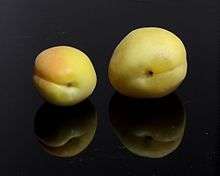Definify.com
Webster 1913 Edition
Left
Left
,Adj.
[OE.
left
, lift
, luft
; akin to Fries. leeft
, OD. lucht
, luft
; cf. AS. left
(equiv. to L. inanis
), lyftādl
palsy; or cf. AS. lēf
weak.] 1.
Of or pertaining to that side of the body in man on which the muscular action of the limbs is usually weaker than on the other side; – opposed to
right
, when used in reference to a part of the body; as, the
. Also said of the corresponding side of the lower animals. left
hand, or arm; the left
earLeft bank of a river
, that which is on the left hand of a person whose face is turned downstream.
– Left bower
. See under 2d
– Bower
. Left center
, the members whose sympathies are, in the main, with the members of the Left, but who do not favor extreme courses, and on occasions vote with the government. They sit between the Center and the extreme Left.
– Over the left shoulder
, or Over the left
an old but still current colloquialism, or slang expression, used as an aside to indicate insincerity, negation, or disbelief;
as, he said it, and it is true, –
.over the left
Left
,Noun.
1.
That part of surrounding space toward which the left side of one’s body is turned;
as, the house is on the
. left
when you face NorthPut that rose a little more to the
left
. Ld. Lytton.
Webster 1828 Edition
Left
LEFT
, pret. and pp. of leave.LEFT
,Adj.
1.
Denoting the part opposed to the right of the body; as the left hand, arm or side. Hence, the noun being omitted, we say, on the left, that is, on the left side or wing, as of an army.2.
The left bank of a river, is that which is on the left hand of a person whose face is towards the mouth of the river.Definition 2026
left
left
See also: lëft
English
Pronunciation
- IPA(key): /lɛft/
- Rhymes: -ɛft
Adjective
left (comparative more left or lefter, superlative most left or leftmost)
- The opposite of right; toward the west when one is facing north.
- Turn left at the corner.
- (politics) pertaining to the political left

The fruit to the viewer's left is smaller.
Translations
the west side of the body when one is facing north
|
|
pertaining to the political left
Synonyms
Antonyms
Derived terms
Derived terms
Adverb
left (not comparable)
- On the left side.
- Towards the left side.
Translations
on the left side
|
|
towards the left side
|
|
Noun
left (plural lefts)
- The left side or direction.
- (politics) The ensemble of left-wing political parties. Those holding left-wing views as a group.
- The political left is not holding enough power.
- (boxing) A punch delivered with the left fist.
Synonyms
- (left side or direction): 9 o'clock, port
- (politics):
Derived terms
- lefty
- to the left
Translations
the left side
|
|
the ensemble of left-wing political parties
|
|
Etymology 2
Middle English left, variant of laft (“remaining, left”), from Old English lǣfd, ġelǣfd, past participle of lǣfan (“to leave”). More at leave.
Verb
left
- simple past tense and past participle of leave.
- 1913, Joseph C. Lincoln, chapter 8, in Mr. Pratt's Patients:
- Afore we got to the shanty Colonel Applegate stuck his head out of the door. His temper had been getting raggeder all the time, and the sousing he got when he fell overboard had just about ripped what was left of it to ravellings.
-
- Remaining.
- There are only three cups of juice left.
Translations
remaining
|
|
Etymology 3
From a verbal use of leave (“permission”), perhaps connected to Middle English leven (“to give leave to, permit, concede”), from Old English līefan, lȳfan (“to allow”). More at leave.
Verb
left
- (Ireland, colloquial) permitted, allowed to proceed.
- We were not left go to the beach after school except on a weekend.
References
- The Concise Dictionary of English Etymology, Walter W. Skeat.